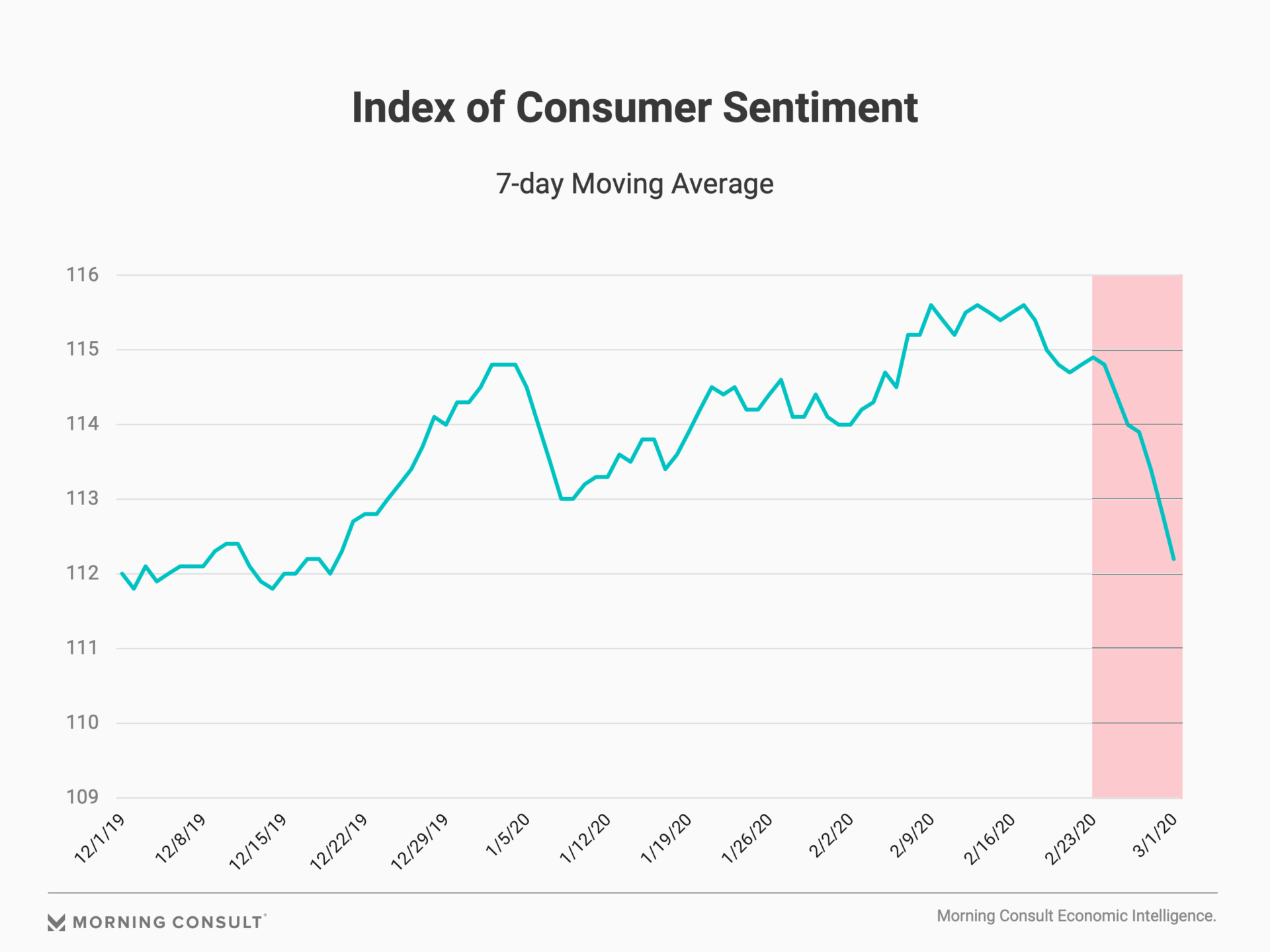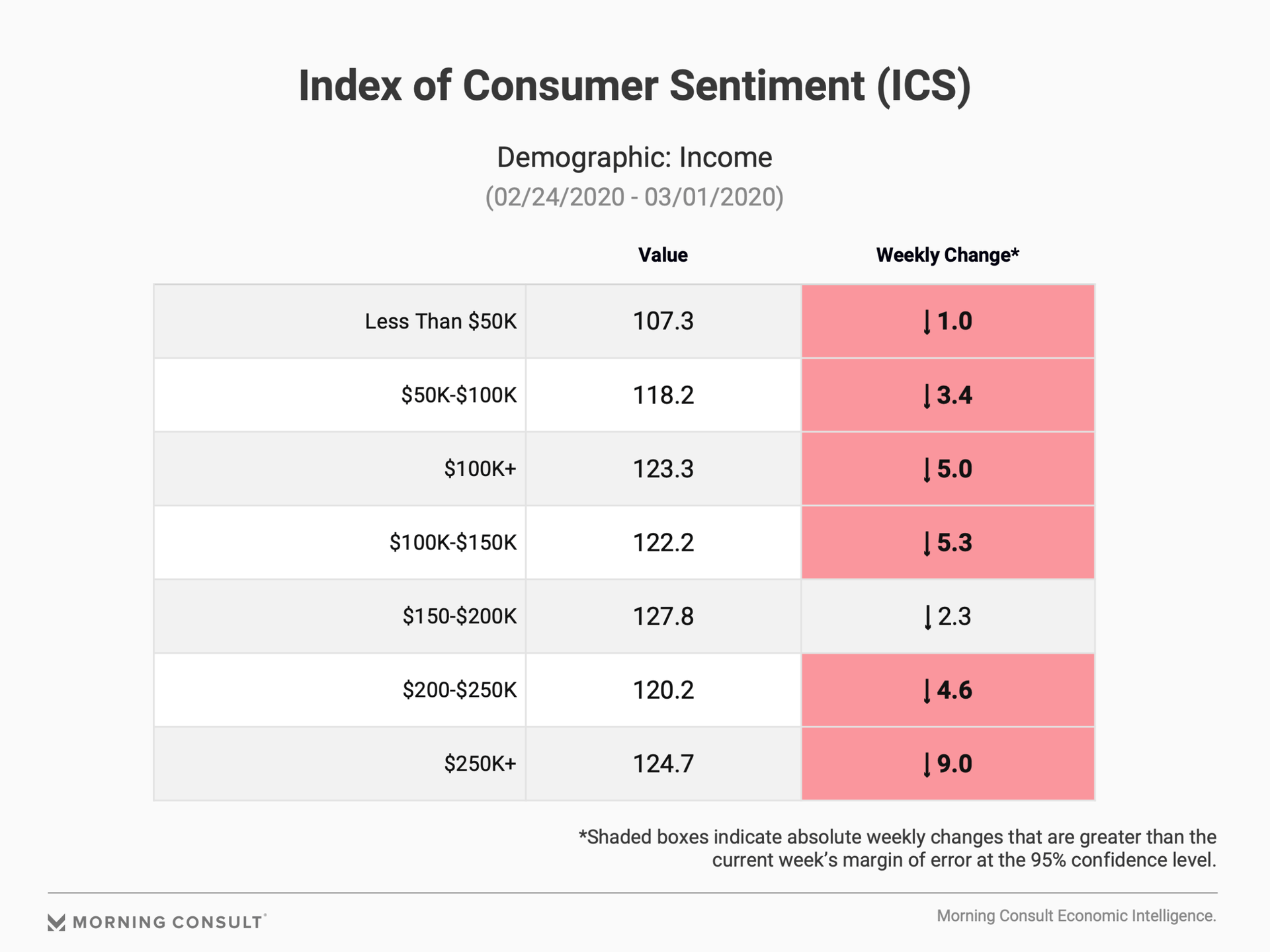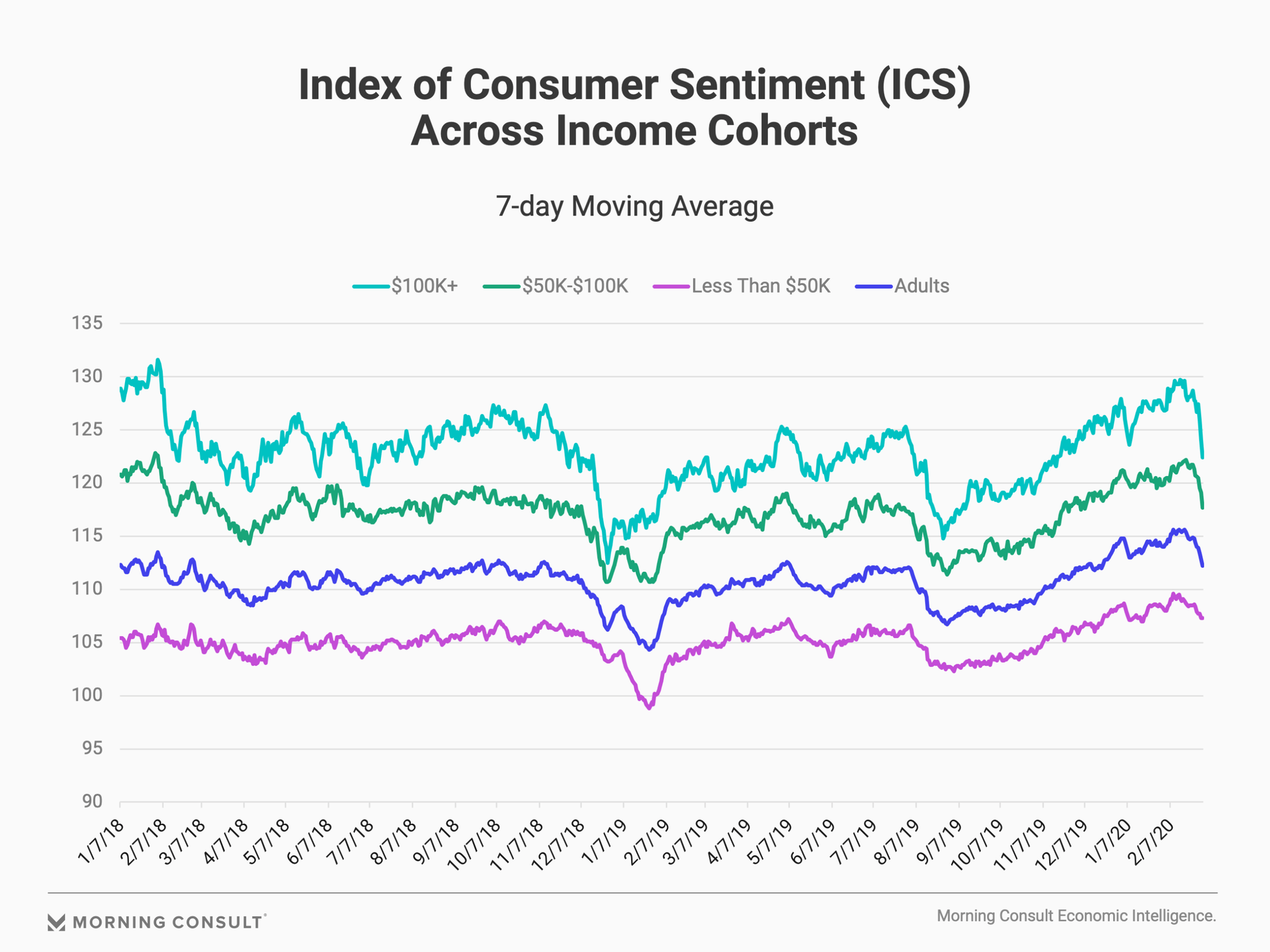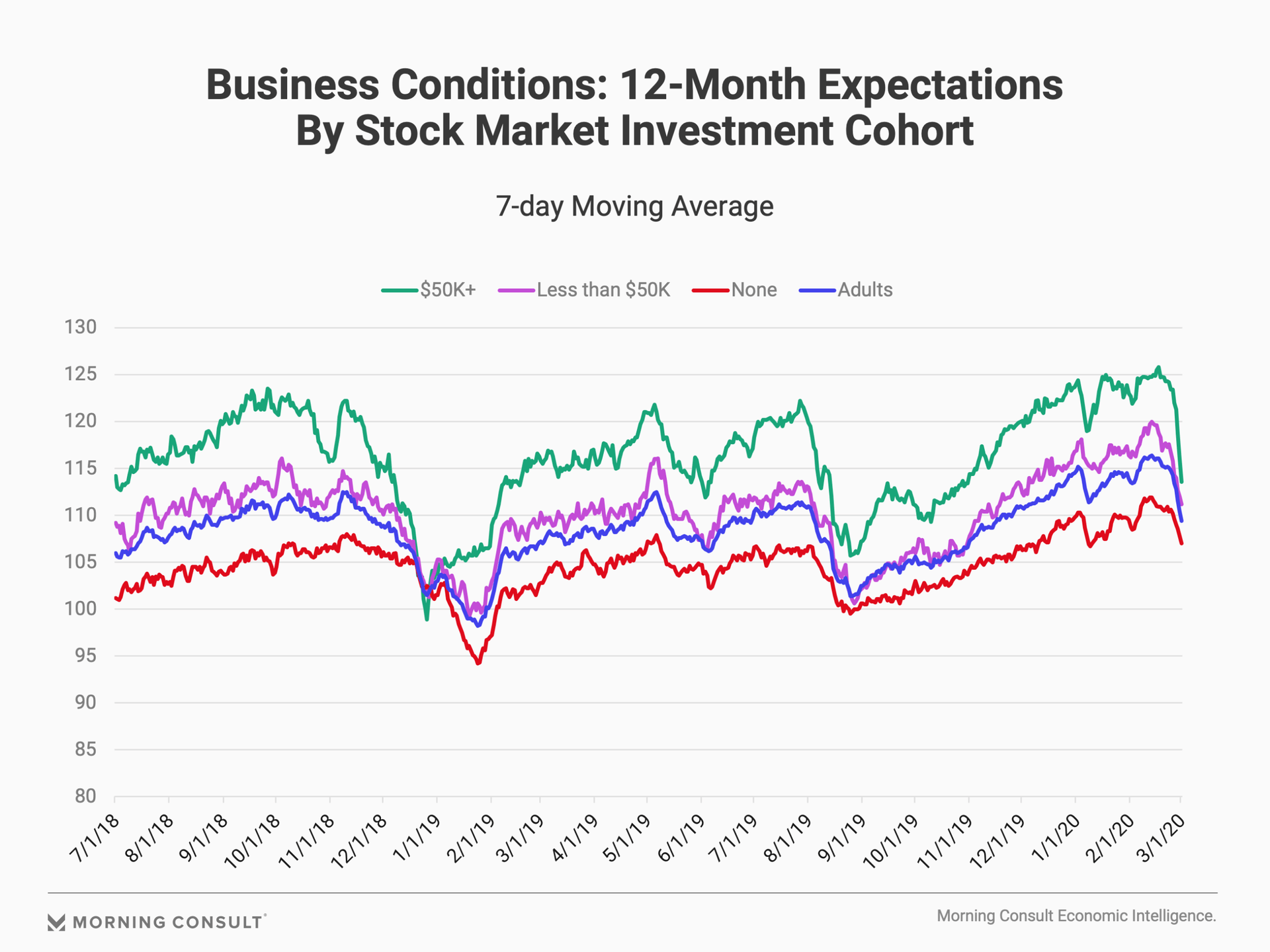Coronavirus Fears Hit Consumer Confidence, Driving Decline Among High-Income Group
The stock market last week experienced unprecedented declines as investors reacted to the growing coronavirus epidemic. Daily Morning Consult tracking data on consumer confidence showed early declines across key indicators.
For an in-depth analysis of what happened last week, Morning Consult analyzed consumer confidence data from Feb. 24 through March 1 to determine the trends behind the dip in consumer sentiment.
Coronavirus Fears Hit U.S. Consumer Confidence: Morning Consult’s Index of Consumer Sentiment (ICS) fell 2.3 points last week to 112.5. For context, there have only been two other weeks since Jan. 1, 2018, with larger declines: the week including a large intraday decrease in the Dow on Feb. 5, 2018, and the week including President Donald Trump threatening to declare a national immigration emergency on Jan. 8, 2019. Economists and policymakers rely on changes in confidence over time – rather than strictly absolute levels – to inform their outlook on future U.S. consumer spending. Thus, even though consumer confidence has been lower on previous occasions, this rate of decline is alarming.

Daily Volatility and Differences Across Incomes Paint An Even Gloomier Picture: While the aggregate weekly numbers are troubling, the data becomes more bleak when looking at recent trends and demographic breakouts.

The drop-off in consumer confidence last week was particularly pronounced among higher-income households. Confidence fell the most among consumers living in households making over $250,000 per year. From a policy and business perspective, detailed breakouts by income cohorts are important because high-income households disproportionately drive discretionary consumer spending.
Households in the top three income deciles (defined as making $101,000 per year prior to taxes) account for well over 50 percent of total consumer spending, and an even higher share of discretionary spending. Looking at Morning Consult’s daily data among income cohorts provides the clearest indicator of the current state of consumer confidence for consumers with the capacity to continue driving U.S. consumption.

Investor Sentiment Falls Sharply: The largest driver of the decrease in consumer confidence last week was the “Business Conditions: 12 Month Expectations” component of the ICS, which fell 5.0 points to 109.9. The drop was particularly pronounced among consumers with more than $50,000 invested in the stock market.

As was the case in December 2018 and August 2019, recent decreases in the stock market translated into decreases in consumers’ expectations of future business conditions in the country as a whole, particularly among those with more than $50,000 invested in the stock market. However, these two cases provide dramatically different scenarios.
Confidence in future business conditions rapidly increased following the resolution of the U.S. government shutdown in January 2018, but it rebounded much more slowly in August 2019. One explanation for the divergent responses is that consumers more quickly and firmly believed that the U.S. government would return to business as usual, whereas they remained skeptical of the ability of businesses to withstand heightened U.S.-China trade tensions.
The current episode resembles the latter more than the former: the coronavirus outbreak in the United States is likely to get worse before it gets better, and the Group of 7 economies that most need to respond to the economic implications of the outbreak (including France, Italy and Japan) are in the weakest position to do so.
Morning Consult’s latest results are based on surveys of 52,804 U.S. adults, conducted Feb. 24, 2020-March 1, 2020.
— John Leer, Economist, Morning Consult Economic Intelligence
About Morning Consult Economic Intelligence
Morning Consult’s Economic Intelligence: U.S. Consumer Confidence is an ongoing nationally representative survey based on approximately 7,500 daily and 210,000 monthly online interviews with adults across the entire United States, giving insight into key daily consumer confidence metrics. Sign up here to receive this data in your inbox every week.
John Leer leads Morning Consult’s global economic research, overseeing the company’s economic data collection, validation and analysis. He is an authority on the effects of consumer preferences, expectations and experiences on purchasing patterns, prices and employment.
John continues to advance scholarship in the field of economics, recently partnering with researchers at the Federal Reserve Bank of Cleveland to design a new approach to measuring consumers’ inflation expectations.
This novel approach, now known as the Indirect Consumer Inflation Expectations measure, leverages Morning Consult’s high-frequency survey data to capture unique insights into consumers’ expectations for future inflation.
Prior to Morning Consult, John worked for Promontory Financial Group, offering strategic solutions to financial services firms on matters including credit risk modeling and management, corporate governance, and compliance risk management.
He earned a bachelor’s degree in economics and philosophy with honors from Georgetown University and a master’s degree in economics and management studies (MEMS) from Humboldt University in Berlin.
His analysis has been cited in The New York Times, The Wall Street Journal, Reuters, The Washington Post, The Economist and more.
Follow him on Twitter @JohnCLeer. For speaking opportunities and booking requests, please email [email protected]